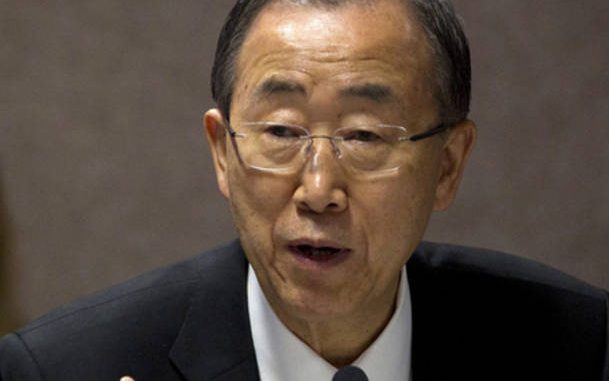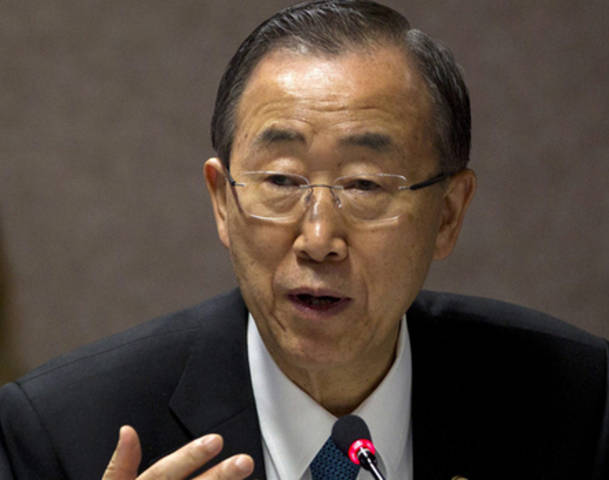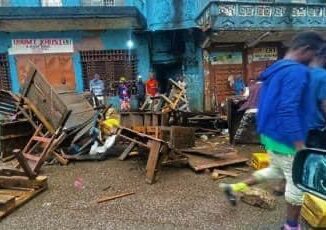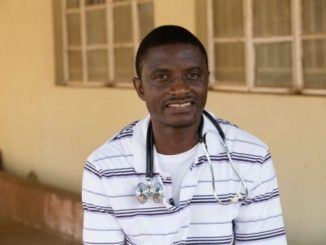
UNITED NATIONS — The head of the United Nations said Tuesday that the world body is “taking the lead now” on international efforts to fight the Ebola outbreak in West Africa that has killed some 2,400 people and could spread further.
Secretary-General Ban Ki-moon said at a press briefing that the U.N. General Assembly next week will follow-up with a high-level meeting — the disease, he said, taking on “a special focus” at an event that will welcome more than 140 heads of state and government. Before that, an emergency meeting called by the U.S. will be held Thursday in which Ban and World Health Organization director general Margaret Chan plan to “outline the international action plan to contain this threat.”
A draft resolution which the U.S. hopes will be adopted unanimously at Thursday’s meeting encourages the governments of Liberia, Sierra Leone and Guinea — the three hardest-hit countries — to accelerate the rapid diagnosis and isolation of suspected Ebola cases and launch public education campaigns about the virus. It also encourages the three governments “to continue efforts to resolve and mitigate the wider political, security and humanitarian dimensions of the Ebola outbreak.”
The draft, obtained by The Associated Press, also addresses the “detrimental effect” of the isolation of the affected countries and calls for the lifting of travel and border restrictions as a result of the Ebola outbreak, and stepped-up efforts to deliver health workers and supplies to deal with the outbreak.
U.S. Ambassador Samantha Power told reporters the response to the draft resolution and U.S. action by the Centers for Disease Control and Prevention to address Ebola “has been overwhelmingly positive.”
The U.N.’s response so far has drawn criticism, with the president of the France-based humanitarian group Doctors Without Borders on Tuesday calling it “dangerously behind.”
Ban also said the disease could “affect political instability” if it isn’t “properly contained and properly treated.”
“This is not just a health crisis,” Ban told reporters. “It has grave humanitarian, economic and social consequences that could spread far beyond the affected countries.”
The Ebola outbreak has also reached Nigeria and Senegal. Ebola is spread through direct contact with the bodily fluids of sick patients, making doctors and nurses especially vulnerable to contracting the virus, which has no vaccine or approved treatment.
In his role as U.N. chief, Ban also said he has discussed the outbreak with President Barack Obama, along with leaders from the Britain, France, Italy, the European Union and Cuba. He added that he has urged leaders in the most affected countries to establish special centers that aim to isolate infected people from non-infected relatives in an effort to stem the spread of Ebola.
Many regional and major airlines in August suspended services to Liberia, Sierra Leone and Guinea, complicating efforts to bring medical workers and supplies to the region.
In the briefing, Ban reiterated an appealed for international airlines and shipping companies not to suspend services to countries affected by Ebola. Doing so, he said, hampers and prevents the U.N. and international health workers from providing humanitarian and medical assistance.





Leave a Reply